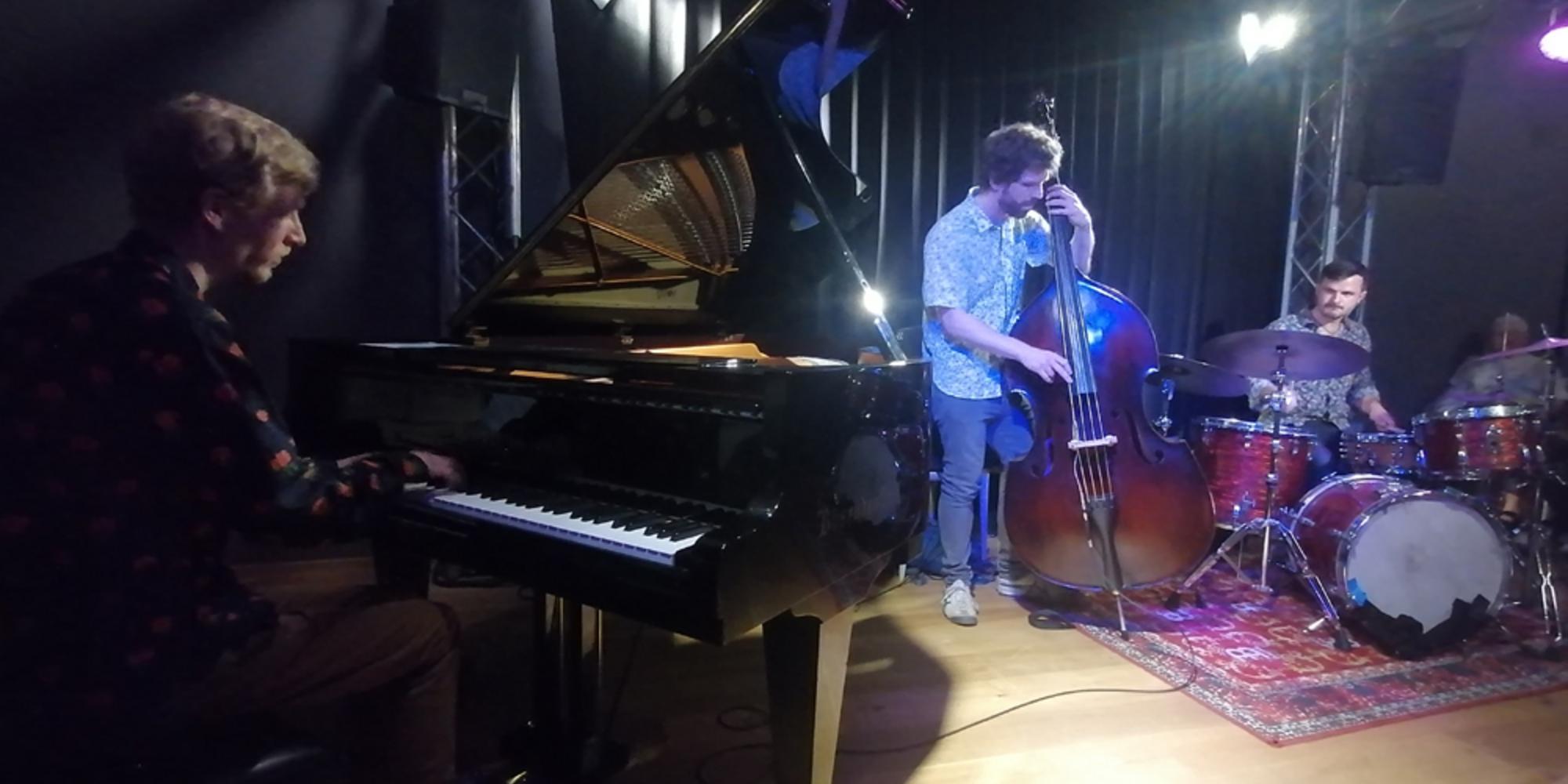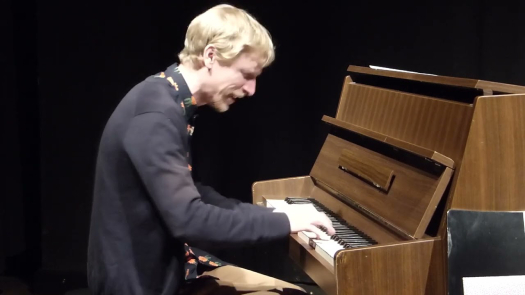Jazz interview with jazz Austrian pianist Martin Listabarth. An interview by email in writing.
JazzBluesNews.com: – First, let’s start out with where you grew up, and what got you interested in music. How exactly did your adventure take off? When did you realize that this was a passion you could make a living out of?
Martin Listabarth։ – I was born in Vienna in 1991. My parents are both teachers, but both enjoy playing the piano for fun. I was very fascinated by the variety of textures and styles you can create on the piano— that was the main thing that drew me to the piano. From the age of 5 I received classical piano lessons. From the beginning I enjoyed taking parts of the pieces I was supposed to learn, repeating them, changing them and playing around with them—so that was my natural introduction to improvisation (even though I didn’t know the term for it at the time).
JBN։ – How has your sound evolved over time? What have you been doing to find and develop your own sound?
ML: – As a teenager I listened to a lot of pop and rock music – „Radiohead“ was my favorite band. When I came across Brad Mehldau and his versions of Radiohead songs, that was my entry into the exciting world of jazz. Brad Mehldau definitely was my starting point for my interest in jazz and is still an important influence for me today. As I explored his recordings more and more, I went further and further back in jazz history and became interested in the pianists who might have influenced Brad’s style (e.g. Keith Jarrett, Bud Powell, Wynton Kelly, etc.). I was also very fascinated by the early milestones of jazz solo piano by pianists like Fats Waller and Earl Hines.
Finding and developing my own sound is a life-long process. I’m trying to become more and more aware of the what the things in music are, that i love the most and at the same time be open to learning new things.
JBN։ – What routine practices or exercises have you developed to maintain and improve your current musical proficiency, in terms of both rhythm and harmony?
ML: – I usually start my practice sessions with some classical music, i want to check out (at the moment a lot of impressionist composers like Ravel und Debussy). Then practicing jazz standards (Voicings, Improvising, Concepts, …). Usually some sort of transcribing (not full solos, but only certain passages and phrases that particularly fascinated me) and playing around with these phrases (transposing, modify them).
JBN։ – Have you changed through the years? Any charges or overall evolution? And if so why?
ML: – My most important development in recent years has been to embrace the process of learning and growing itself more and more. When I started my musical journey I was very impatient and wanted to learn everything at once. I am still impatient, but I try to learn smaller portions, step by step. One of the most beautiful things about music is, that there is always something new to discover and to learn and this journey never ends.
There could be talk or advertising about your CD
JBN։ – In your opinion, what’s the balance in music between intellect and soul?
ML: – I think the famous quote from Charlie Parker sums it up best: “Master your instrument. Master the music. And then forget all that bullshit and just play.” But definitely both aspects, intellect and soul, are important for music.
JBN։ – There’s a two-way relationship between audience and artist; are you okay with delivering people the emotion they long for?
ML: – I totally agree with, that there is always a relationship between audience and artist at every concert. As in any relationship, you will notice when someone is not being authentic or honest. So I think, the best thing you can do, is trying to be as authentic as possible – whatever that means. The audience will appreciate that, and if I’m honestly having fun making music, that will transfer to the audience as well.
JBN։ – How can we get young people interested in jazz when most of standard tunes are half a century old?
ML: – That’s a very good question. To answer this question, we musicians need to constantly ask ourselves how, what we do, is relevant to young people. What is the message we want to bring through? What do we do to communicate this message?
JBN։ – John Coltrane once said that music was his spirit. How do you perceive the spirit and the meaning of life?
ML: – I believe that we can learn a lot from music (especially jazz) for life in general: Listen to each other, being respectful, giving each other enough space. If we could internalize these things and apply them to our daily lives, our world would look completely different.
JBN։ – If you could change one single thing in the musical world and that would become reality, what would that be?
ML: – I wish people would put aside their prejudices and get involved with music outside their comfort zone. That way, people would get to know a lot more wonderful music.
JBN։ – Whom do you find yourself listening to these days?
ML: – Brad Mehldau and currently a lot to the great masters of melody like Billie Holiday, Luis Armstrong, Lester Young,…
JBN։ – What is the message you choose to bring through your music?
ML: – Trying to connect with people (other musicians, audience) on a deep level – through our shared passion for music and a respectful approach to each other.
JBN։ – Let’s take a trip with a time machine: where and why would you really want to go?
ML: – I would go to one of Keith Jarrett’s legendary solo concerts in the 1970s.
JBN։ – At the bottom line, what are your expectations from our interview?
ML: – I hope that there are at least some thoughts and inputs. Thank you, Simon, I am really grateful for this opportunity.
Interview by Simon Sargsyan
Note: You can express your consent and join our association, which will give you the opportunity to perform at our Jazz and Blues festivals in Europe and Boston, naturally receiving an appropriate royalty. We cover all expenses. The objectives of the interview are: How to introduce yourself, your activities, thoughts and intellect, and make new discoveries for our US/EU Jazz & Blues Association, which organizes festivals, concerts and meetings in Boston and various European countries, why not for you too!! You can read more about the association here. https://jazzbluesnews.com/2022/11/19/us-eu-jba/







More Stories
Interview with Janis Siegel of The Manhattan Transfer: Jazz, being a more refined, interpreted form of music
CD review: George Benson – Dreams Do Come True: When George Benson Meets Robert Farnon – 2024: Video, CD cover
The band was tight as ever. The Warren Haynes Band cuts loose: Video, Photos